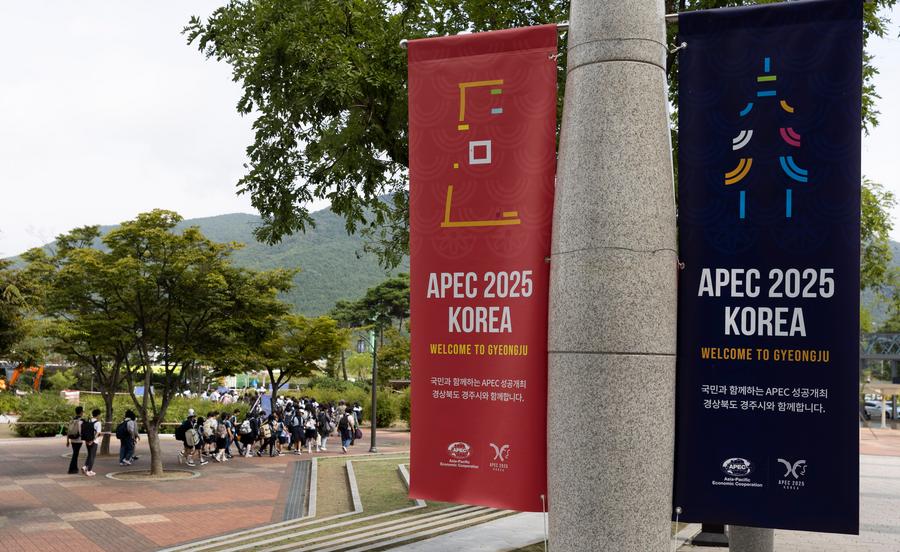Xi Jinping's vision for an open, inclusive Asia-Pacific


BEIJING -- Amid mounting trade shocks and heightened geopolitical uncertainties, President Xi Jinping will join leaders from APEC economies in South Korea in the coming days, in a bid to build consensus for shared prosperity and reaffirm China's commitment to open, inclusive economic globalization.
The International Monetary Fund has projected that economic growth in the Asia-Pacific will slow from 4.5 percent this year to 4.1 percent in 2026, a sobering forecast that underscores the urgency to keep the spirit of cooperation alive, and foster new drivers and growth momentum during these challenging times.
As the leaders gather once again, Xi is expected to double down on a long-held vision: an open Asia-Pacific economy. For him, this dynamic region remains the world's growth engine, a force capable of fueling the global economy moving forward.

CHAMPIONING FREE TRADE
In 2025, APEC members collectively account for over 60 percent of the world's total GDP. Xi has regarded the region as a key priority for advancing free trade. Driven by Xi's vision, China has strengthened its economic ties with other 20 member economies, among which 15 are already China's free trade partners.
Malaysia, an APEC member, offers a vivid example. China has been its largest trading partner for 16 consecutive years. "Malaysian durians can now be delivered directly from orchards to Chinese supermarkets within 24 hours, and they are immensely popular among Chinese consumers," Xi wrote in a signed article this April ahead of his state visit to the country -- a detail that captured the growing strength of bilateral trade.
In June 2024, China further opened its market to durians from Malaysia. That same year, China-Malaysia trade climbed to a record $212 billion, bucking the global downturn.
During the visit, Xi told Malaysian Prime Minister Anwar Ibrahim, who chairs ASEAN in 2025, that China is ready to work with regional countries to "use Asia's stability and certainty to counter global instability and uncertainty." In response, Anwar said ASEAN does not approve of any unilateral imposition of tariffs and will maintain economic growth through cooperation.
In fact, Xi has been committed to such an approach. "History tells us that openness and cooperation are a major driving force behind dynamic international economic and trade activities," Xi said in 2018 when he launched the first China International Import Expo in Shanghai. That year, as the twin forces of unilateralism and protectionism grew stronger, the Chinese leader chose a different course -- to keep China's door wide open. As he has repeatedly declared: "China will not change its resolve to expand high-level opening-up."
























